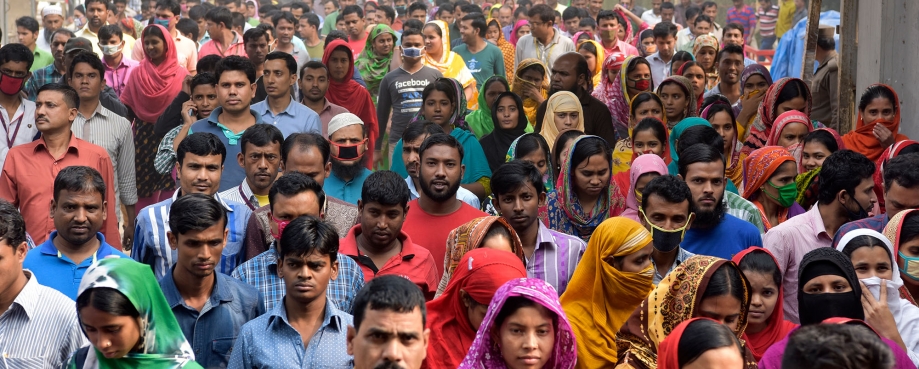
Last month, I travelled to Dhaka, Bangladesh to meet colleagues, attend ‘Made in Bangladesh Week’, see factories and social dialogue training in action, and speak to factory owners and workers. It was great to develop a deeper understanding of the ready-made garment (RMG) sector (which makes up 84% of Bangladesh’s total exports), and see first-hand how ETI Bangladesh drives change with and for workers.
Here are my key takeaways:
Our workplace training helps build workers’ confidence and amplify their voices, within and beyond the factory
One element of ETI Bangladesh’s work is delivering in-factory social dialogue and gender training, strengthening worker voice, improving relations between management and workers, and addressing gender-based violence.
My colleague Jinia spoke passionately about her role and watching her delivering the social dialogue training was inspiring – she has such charisma and energy! She later told me how emotional the training can be; the four-day worker-only training is held outside of the factory, and she watches as participants build confidence and trust in one another. She says sharing her own story helps to tackle stigma and break down barriers.
Beyond the factory, my colleague Shoeb told me about a worker who had been so inspired by the training that she reached out to her estranged brother. She invited him over for a meal and used her newly exercised diplomatic skills to resolve their long-term conflict.
We also spoke to representatives from ETI company members Primark and Inditex, who emphasised the benefits of the training in their own supply chains – they are keen to see it scale up.
We are finding innovative solutions to issues like gender and climate change
On the cusp on graduating from Least Developed Country (LDC) status and already feeling the brutal effects of climate change, now is the time for innovation in Bangladesh.
The country’s green credentials are increasing; eight out of the top 10 LEED (Leadership in Energy and Environmental Design) certified garment factories are in Bangladesh. ETI Bangladesh is piloting an innovative green social dialogue programme, aiming to include workers in a just transition to a low-carbon economy.
We are also awaiting the results of some ground-breaking research into why the percentage of women workers in the garment industry is decreasing, from 80% to 60%. It’s assumed this is linked to automation, but the research will offer evidence and steer future work. I look forward to reading the report.
Trust and honest dialogue are vital to driving change along the value chain
It was very clear from watching my colleagues interacting with factory management and workers that the respect is mutual – only with trust can the programmes work, and real social dialogue happen.
Many stakeholders discussed incoming legislation, including the EU Directive on Corporate Sustainability Due Diligence, and how to ensure retailers don’t just pass responsibility down the value chain. It's not yet clear what new legislation will involve, but we do know ETI company members are well positioned for it, given our focus on human rights due diligence.
To deliver significant change, we need to ensure we listen to voices throughout the value chain; by understanding one another’s context, pressures and motivators, change will be faster and more sustainable. ETI’s company members are largely brands and retailers, so I was keen to hear from manufacturers and explore bringing different businesses into the membership. More on this soon – watch this space.
ETI Bangladesh is rolling out a new strategy in 2023, which will focus on social dialogue, gender, just transitions, and human rights due diligence. I’m so excited to see what we can do next.

From left to right: Munir Uddin Shamim, Mahboob Sobhan, Laurent Arnone, Florence Batten-Turner, Peter McAllister, Abil Bin Amin.
In the meantime, you’ll find me dreaming of delicious Bangladeshi food and singing the Made in Bangladesh theme tune (listen at your peril – it's very catchy...).
